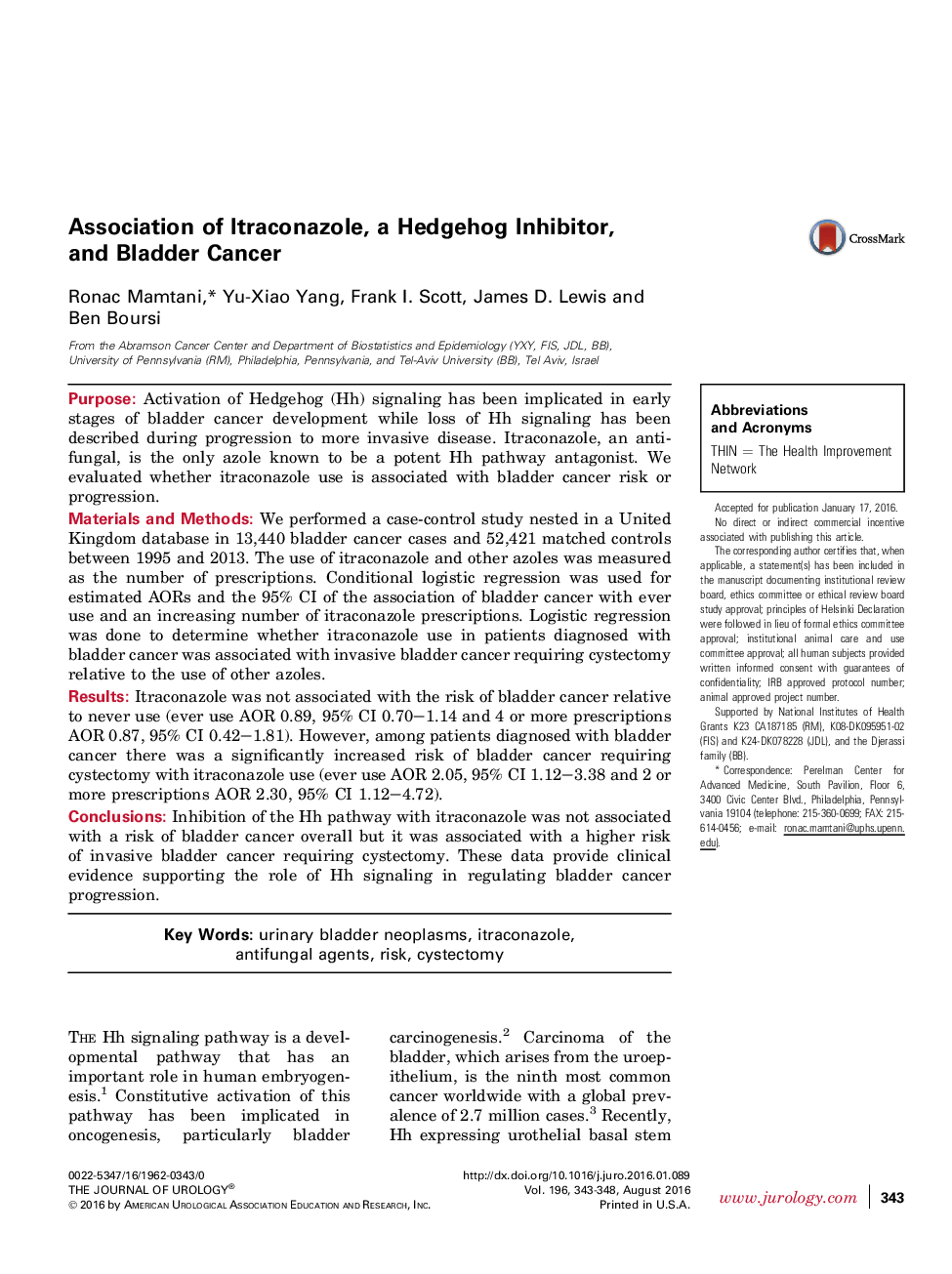| Article ID | Journal | Published Year | Pages | File Type |
|---|---|---|---|---|
| 3858330 | The Journal of Urology | 2016 | 6 Pages |
PurposeActivation of Hedgehog (Hh) signaling has been implicated in early stages of bladder cancer development while loss of Hh signaling has been described during progression to more invasive disease. Itraconazole, an antifungal, is the only azole known to be a potent Hh pathway antagonist. We evaluated whether itraconazole use is associated with bladder cancer risk or progression.Materials and MethodsWe performed a case-control study nested in a United Kingdom database in 13,440 bladder cancer cases and 52,421 matched controls between 1995 and 2013. The use of itraconazole and other azoles was measured as the number of prescriptions. Conditional logistic regression was used for estimated AORs and the 95% CI of the association of bladder cancer with ever use and an increasing number of itraconazole prescriptions. Logistic regression was done to determine whether itraconazole use in patients diagnosed with bladder cancer was associated with invasive bladder cancer requiring cystectomy relative to the use of other azoles.ResultsItraconazole was not associated with the risk of bladder cancer relative to never use (ever use AOR 0.89, 95% CI 0.70–1.14 and 4 or more prescriptions AOR 0.87, 95% CI 0.42–1.81). However, among patients diagnosed with bladder cancer there was a significantly increased risk of bladder cancer requiring cystectomy with itraconazole use (ever use AOR 2.05, 95% CI 1.12–3.38 and 2 or more prescriptions AOR 2.30, 95% CI 1.12–4.72).ConclusionsInhibition of the Hh pathway with itraconazole was not associated with a risk of bladder cancer overall but it was associated with a higher risk of invasive bladder cancer requiring cystectomy. These data provide clinical evidence supporting the role of Hh signaling in regulating bladder cancer progression.
